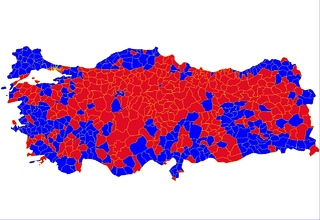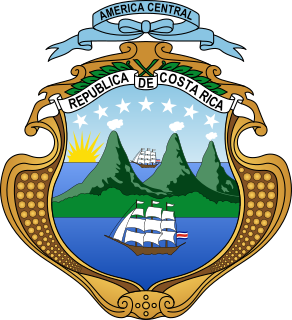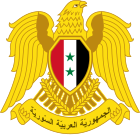
Elections in Venezuela are held at a national level for the President of Venezuela as head of state and head of government, and for a unicameral legislature. The President of Venezuela is elected for a six-year term by direct election plurality voting, and is eligible for re-election. The National Assembly (Asamblea Nacional) has 165 members (diputados), elected for five-year terms using a mixed member majoritarian system. Elections also take place at state level and local level.

A seven-question referendum was held in Belarus on 24 November 1996. Four questions were put forward by President Alexander Lukashenko on changing the date of the country's independence day, amending the constitution, changing laws on the sale of land and the abolition of the death penalty. The Supreme Council put forward three questions on constitutional amendments by the Communist and Agrarian factions, local elections and the national finances.

A referendum on allowing President Lukashenko to stand in further elections was held in Belarus on 17 October 2004, alongside parliamentary elections. Lukashenko was nearing the end of his constitutionally-limited two terms, and the change would allow him to run for a third term.

Parliamentary elections were held in Russia on 12 December 1993. They were the first parliamentary elections in post-Soviet Russia and the only time to the Federation Council, with future members appointed by provincial legislatures and governors.

A constitutional referendum was held in Russia on 12 December 1993. The new constitution was approved by 58.4% of voters, and came into force on 25 December.
A constitutional referendum was held in Greece on 15 November 1968. Voters were asked whether they wished to ratify a new constitution prepared by the dictatorial regime. It was approved by 92.1% of voters, with a voter turnout of 77.7%.

A constitutional referendum was held in France on 21 October 1945. Voters were asked whether they approved of the Assembly elected on the same day serving as a Constituent Assembly, and whether until a new constitution was approved, the country would be governed according to a proposed set of laws that appeared on the ballot paper. If the first proposal had not been approved, the Third Republic would have been restored, but its approval led to the elected Assembly drafting a constitution and proposing it to the people a year later, resulting in the creation of the Fourth Republic. Both were approved by wide margins with a turnout of 79.8%.

A constitutional referendum was held in Turkey on 6 September 1987 to amend the "temporary article" 4 of the constitution, which had forbidden the leaders of banned parties from taking part in politics for 10 years. The governing party ANAP agreed to the referendum after a compromise with the opposition parties regarding constitutional changes. ANAP campaigned for No, while most opposition parties campaigned for Yes vote. The changes were narrowly approved by 50.2% of voters, with a 93.36% turnout.

A referendum on presidential powers was held in Syria on 25 June 1949, alongside a referendum on Husni al-Za'im's candidacy for the presidency. Voters were asked whether they approved of four proposals, voting separately on each one. All four proposals were approved.

National Assembly elections were held in areas controlled by North Vietnam on 6 January 1946. Held under the 1946 constitution, they resulted in a victory for the Communist-led Việt Minh, which won 182 of the 302 seats, although the distribution of seats between parties had been decided before the elections. The ballot was not secret, and ballot papers were filled out in the presence of aides who were "to help comrades who had difficulty in making out their ballots."

General elections were held in Costa Rica on 1 April 1917. Federico Tinoco Granados had seized power in a military coup in January and was the only candidate in the presidential election. The elections were considered to be fraudulent and although former president Rafael Yglesias Castro received 249 votes in Alajuela, they were recorded as invalid ballots. Voter turnout was reported to be 69.2% in the presidential election and 67.6% in the parliamentary election.

Constitutional Assembly elections were held in the Dominican Republic on 1 June 1929. The role of the Assembly was to review and amend certain articles of the constitution, which resulted in an amendment to repeal the ban on presidential re-elections. Voter turnout was low and in some places ballots were not even counted.
Elections for the Third German People's Congress were held in East Germany on 15 and 16 May 1949. Voters were presented with a "Unity List" from the "Bloc of the Anti-Fascist Democratic Parties," which was dominated by the Communist-leaning Socialist Unity Party of Germany (SED). The ballot was worded "I am for the unity of Germany and a just peace treaty. I therefore vote for the following list of candidates for the Third German People's Congress," with voters having the options of voting "yes" and "no". In much of the country, the vote was not secret.

General elections were held in Liechtenstein on 29 April 1945. Following the "silent elections" of 1939, they were the first to use the new proportional representation system. The Progressive Citizens' Party won eight of the 15 seats in the Landtag, but remained in coalition with the Patriotic Union.
Three referendums were held in Switzerland during 1919. The first two were held on 4 May on amending the constitution to add article 24ter on shipping, and on a constitutional amendment to impose a war tax. Both proposals were approved by a majority of voters and cantons. The third was held on 10 August on temporary amendments to article 73 of the constitution, and was also approved in spite of low turnout.
Parliamentary elections were held in Colombia on 11 March 1990 alongside local elections and an unofficial referendum on electing a Constitutional Assembly.

A constitutional referendum was held in Gabon and Moyen Congo on 21 October 1945 as part of the wider French constitutional referendum. Both questions were approved by large margins. Voter turnout was 68.1%.

A constitutional referendum was held in Mauritania and Senegal on 21 October 1945 as part of the wider French constitutional referendum. The first question on the new French National Assembly serving as a constituent assembly was approved by 99% of voters, but the temporary constitution proposed in the second question was rejected by 51% of voters. Both proposals were approved in the overall vote. Voter turnout was 60.4%.

A constitutional referendum was held in French Sudan and Niger on 21 October 1945 as part of the wider French constitutional referendum. The first question on the new French National Assembly serving as a constituent assembly was approved by 97% of voters, whilst the temporary constitution proposed in the second question was approved by 86% of voters. Both proposals were also approved in the overall vote. Voter turnout was 79.3%.

A constitutional referendum was held in Tunisia on 21 October 1945 as part of the wider French constitutional referendum. The first question on the new French National Assembly serving as a constituent assembly was approved by 99% of voters, whilst the temporary constitution proposed in the second question was approved by 79% of voters. Both proposals were also approved in the overall vote. Voter turnout was 69.2%.















